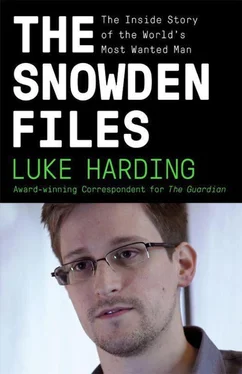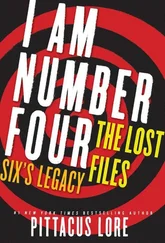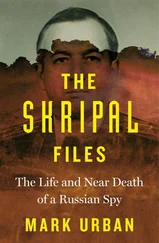Aged 15, MacAskill discovered books. He became an atheist. He stopped going to church. (The breach came one Sunday when the minister devoted an entire sermon to the evils of long hair; MacAskill was the only hirsute teenager in the congregation. The Beatles were increasingly hairy; beards were flourishing.) He won a place at Glasgow University to study history. ‘It transformed my life,’ he says. There, he realised the students who had been privately educated were no brighter than he was; that Britain’s intractable postwar social divisions were more porous than he had thought.
After university, MacAskill joined the Glasgow Herald . He was a trainee. It was the 1970s. The period was one of old-school journalism, when the Herald ’s reporters were kings, rather than its columnists, the stars of today’s popular media, and there was a culture of Big Drinking. Reporters not working on stories would go to Ross’s, a nearby bar down a dark, cobbled lane. If a story broke and you needed a reporter you went to the bar.
MacAskill thrived at the Herald but also had what the Germans call Fernweh , a longing to be far away. In 1978–9 he spent two years training journalists in remote Papua New Guinea. After China, he moved to the Scotsman , and then to London as the Scotsman ’s political correspondent. In 1996 he applied for the same role at the Guardian . Ahead of his interview with Rusbridger, MacAskill was nervous; afterwards the editor told him: ‘That’s the worst interview I’ve heard in my life.’
Nevertheless he got it. MacAskill reported on Tony Blair’s 1997 UK election landslide victory and in 2000 became diplomatic editor, covering Iraq and the Israel–Palestine intifada. In 2007 he moved to Washington. At first his view of Obama was positive, ‘a pretty good president’. Latterly, the administration’s heavy-handed pursuit of journalists and their confidential sources disillusioned him. The relationship between the executive and the Fourth Estate was getting darker and more nasty, its battleground the control of digital information.
So Janine Gibson, the Guardian ’s US editor, could certainly rely on MacAskill for imperturbable and honest advice. He now had a challenging assignment: to verify whether Greenwald’s mysterious ‘NSA whistleblower’ was the real deal. On Monday 3 June, he stayed ensconced in the W Hotel in Kowloon while his pair of freelance companions went off to find their alleged intelligence source for the first time.
MacAskill whiled away the day taking the subway to Hong Kong Island, revisiting old haunts. It was hot and humid. Later that evening, Greenwald returned with his news – Snowden was plausible, if ridiculously young. He had agreed to meet MacAskill. They took a cab back to the Mira Hotel the next morning. Past its onyx entrance, they found Poitras in the lobby. She took them up to room 1014.
Inside 1014, MacAskill saw someone sitting on the bed. The young man was casually dressed in a white T-shirt, jeans and trainers. They shook hands, MacAskill saying: ‘Ewen MacAskill from the Guardian . Pleased to meet you.’ This was Snowden. His living conditions were cramped. There was a bed, and a bathroom; a small black suitcase lay on the floor. A large TV was on with the sound turned down. Through Snowden’s window you could see Kowloon Park; mums and dads were strolling with their kids across a flash of green; it was drizzling, the sky dull and overcast.
The remains of lunch were on the table. When he left Hawaii Snowden clearly hadn’t taken much with him. There were four laptops, with a hard case for the biggest of them. He had brought a single book, Angler: The Shadow Presidency of Dick Cheney , by the Washington Post ’s Barton Gellman. It told the story of how Vice President Cheney secretly brought in ‘special programs’ in the wake of 9/11; the STELLAR WIND affair, part-exposed by the New York Times .
Chapter six, well-thumbed by Snowden, read: ‘The US government was sweeping in emails, faxes and telephone calls, made by its own citizens, in their own country… Transactional data, such as telephone logs and email headers, were collected by the billions… Analysts seldom found information even remotely pertinent to a terrorist threat.’
The encounter with MacAskill went smoothly until he produced his iPhone. He asked Snowden if he minded if he taped their interview, and perhaps took some photos? Snowden flung up his arms in alarm, as if prodded by an electric stick. ‘I might as well have invited the NSA into his bedroom,’ MacAskill says. The young technician explained that the spy agency was capable of turning a mobile phone into a microphone and tracking device; bringing it into the room was an elementary mistake in operational security, or op-sec. MacAskill exited, and dumped the phone outside.
Snowden’s own precautions were remarkable. He piled pillows up against the door to stop anyone from eavesdropping from outside in the corridor; the pillows were stacked up in half-columns either side, and across the bottom. When putting passwords into computers, he placed a big red hood over his head and laptop – a sort of giant snood – so the passwords couldn’t be picked up by hidden cameras. He was extremely reluctant to be parted from his laptops.
On the three occasions he left his room, Snowden employed a classic spy trick, updated for his Asian surroundings. He put a glass of water behind the door next to a piece of a tissue paper. The paper had a soy sauce mark with a distinctive pattern. If water fell on the paper it would change the pattern.
Snowden wasn’t suffering from paranoia. He knew what he was up against. During his stay in Kowloon he had been half-expecting a knock on the door at any moment – a raid in which he would be dragged away. He explained: ‘I could be rendered by the CIA. I could have people come after me – or any of their third-party partners. They work closely with a number of nations. Or they could pay off the triads, or any of their agents or assets. We’ve got a CIA station just down the road in the [US] consulate in Hong Kong. I’m sure they are going to be very busy for the next week. That’s a fear I will live under for the rest of my life, however long that happens to be.’
He confided to MacAskill that one of his friends had taken part in a CIA rendition operation in Italy. This was almost certainly the 2003 snatch of Muslim cleric Abu Omar, who was taken in broad daylight in Milan, flown from a local US airbase, and subsequently tortured. In 2009 an Italian judge convicted the CIA’s Milan station chief, Robert Seldon Lady, and 22 other Americans, most CIA operatives, of kidnapping. Lady later admitted: ‘Of course it was an illegal operation. But that’s our job. We’re at war against terrorism.’
Snowden felt extremely vulnerable right up until the first story on the bulk collection of US metadata from the phone company Verizon was published. (Once articles based on his NSA revelations appeared, the search for him heated up, but he felt the publicity would also offer him a measure of protection.) Before publication, there were risks for the journalists too, obviously. What would happen to them if they were caught with secret material?
With Poitras filming, and Snowden sitting on the bed, MacAskill began a formal interview. He had asked for one-and-a-half to two hours. Greenwald’s questions the previous day had been those of a seasoned litigator verbally slapping and bombarding a doubtful witness; the breakthrough moment came when Snowden talked about comics and gaming.
MacAskill, by contrast, was methodical and reporterly, his journalistic style complementing Greenwald’s. He asked Snowden for the basics. Could he produce his passport, social security number, driver’s licence? What was his last address? What was his salary?
Читать дальше












